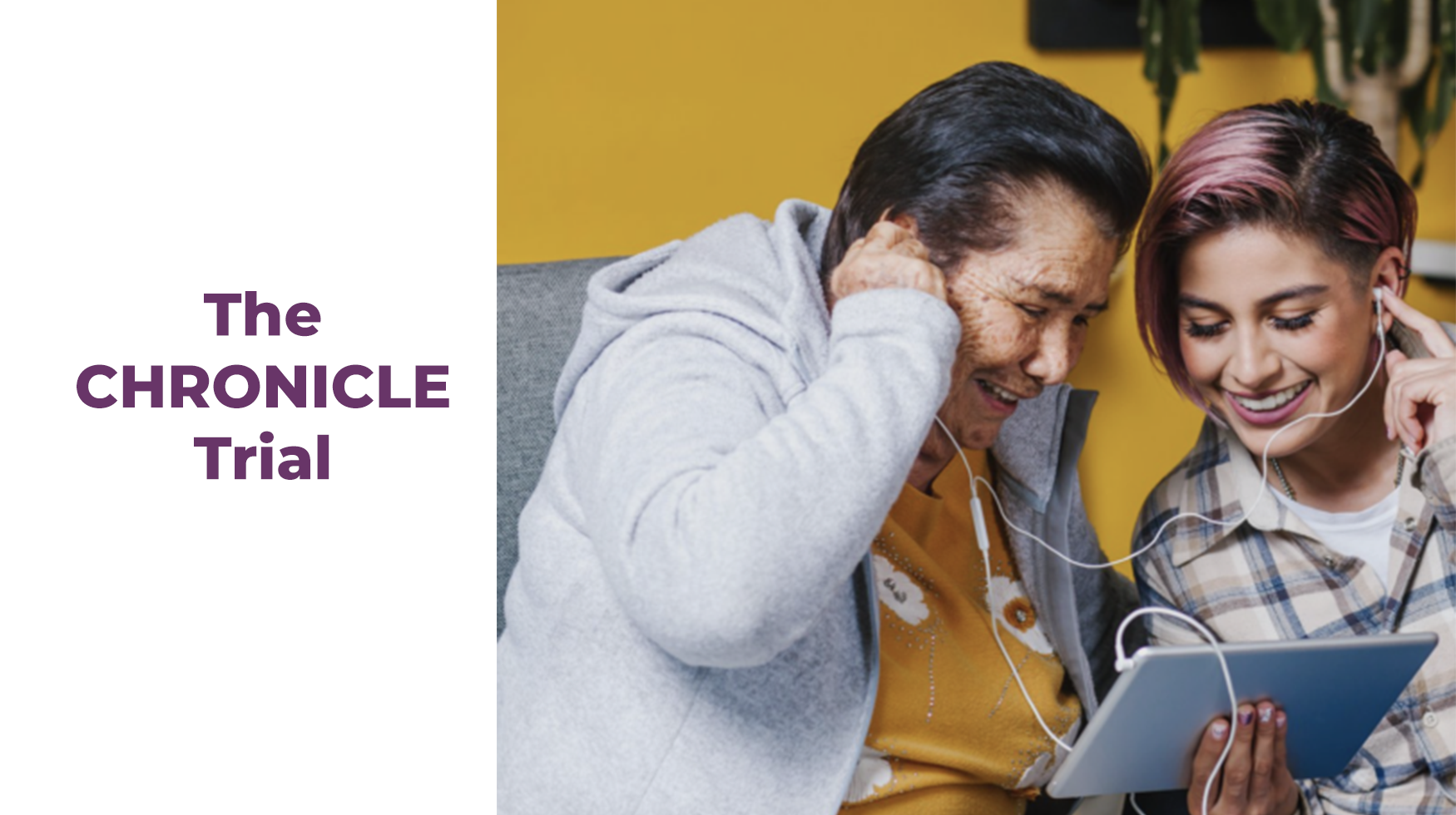
The CHRONICLE Trial will study audio recordings as method of sharing clinic visit information with older adults
A Dartmouth-led research group, including investigators from Vanderbilt University Medical Center (VUMC), University of Texas Medical Branch (UTMB) at Galveston, Beth Israel Deaconess Medical Center, and Harvard Medical School, has received a five-year, $7 million funding award from the Patient-Centered Outcomes Research Institute (PCORI). Their project will assess the effectiveness of older adult patients and their care partners reviewing visit information provided as an audio recording, compared to reviewing the written physician note provided via the online patient portal.
In the U.S., older adults comprise more than 280 million office visits per year. The information exchanged in these visits guides the course of each person’s care—ensuring that this is effectively communicated is of great importance to patients and care partners, especially for more vulnerable patients who are trying to manage multiple chronic conditions.
The CHRONICLE Trial (Comparing Healthcare visit Recording and Open Notes to improve the chronic illness care experience for older adults) will engage 900 older adults (age 65 years or older) with multiple, chronic conditions, and randomize them to receive clinic provider notes through the patient portal alone or notes along with visit audio recordings. The study will be conducted at primary care visits over a six-month period.
“Roughly 40–80% of medical information is forgotten immediately by patients, and although written summaries of office visits are widely adopted, it isn’t clear if this is the best way to share information,” explained Paul Barr, PhD, Associate Professor of The Dartmouth Institute for Health Policy & Clinical Practice and principal investigator of the study. “Visit audio recordings have emerged as another evidence-based strategy to share information. This has resulted in a decisional dilemma for patients and healthcare leaders who ask the question, What is the most effective approach to communicate healthcare visit information to older adults living in the community?”
“This project is very important to me in that I fall into the group that this project targets,” said Sheryl Piper, a patient partner for The CHRONICLE Trial. “With the medical issues I have, and the memory problems that result from some of them, finding ways to better access information from doctor visits is vital.”
Piper and other patients play a key role as active partners with the research team, and helped identify the need for the trial in their communities. The patient group, along with other key stakeholders, will be actively engaged in all aspects of the study.
“Sometimes it all looks good until the patient sees it,” said Roger Arend, another patient partner. “It’s really satisfying to give voice to how a patient perceives it [research] in the drawing board stages.”
“Nearly 42 million Americans provide care for an older adult, typically a family member,” said Meredith Masel, PhD, MSW, an Assistant Professor and Director of the Oliver Center for Patient Safety & Quality Healthcare at the University Texas Medical Branch, in Galveston, Texas, and one of the study investigators. “Involving care partners helps address a gap in understanding how effective communication of visit information will support care partners.”
The study is partnering with OpenRecordings to supply audio and video recordings of clinic visits. To incorporate the audio recordings, all patient visits with study clinicians will be audio-recorded over 6 months using HealthPAL, an NIH-funded HIPAA-compliant audio personal health library. HealthPAL was developed by Barr with older adults and their care partners, and is available in Spanish and English. Participants in the audio arm of The CHRONICLE Trial will receive orientation to the patient portal and HealthPAL, including information on how to listen to and share their recordings. The investigators aim to recruit 300 care partners to the study to learn how they may use recordings to help them care for their loved ones.
“We need to be better at communicating health information to vulnerable, older adult patient populations,” said Kerri Cavanaugh, MD, MHS, an Associate Professor and the Director of the Vanderbilt Center for Effective Health Communication, at Vanderbilt University Medical Center in Nashville, TN. “Older adults are at high risk for adverse health outcomes and lower quality of life, and the best way to learn more is by partnering with the patient communities we serve.”
Study investigators include:
- Paul Barr, PhD, Associate Professor, The Dartmouth Institute for Health Policy & Clinical Practice, Center for Technology & Behavioral Health, Geisel School of Medicine
- Kerri Cavanaugh, MD, MHS, Director, Vanderbilt Center for Effective Health Communication, Associate Professor, Vanderbilt University Medical Center
- Meredith Masel, PhD, MSW, Director, Oliver Center for Patient Safety & Quality Healthcare, Assistant Professor, University Texas Medical Branch, Galveston
- Cait DesRoches, DrPH, Director, OpenNotes, Beth Israel Deaconess Medical Center, Associate Professor, Harvard Medical School
For a full list of investigators, visit OpenRecordings: The CHRONICLE Trial.





You must be logged in to post a comment.